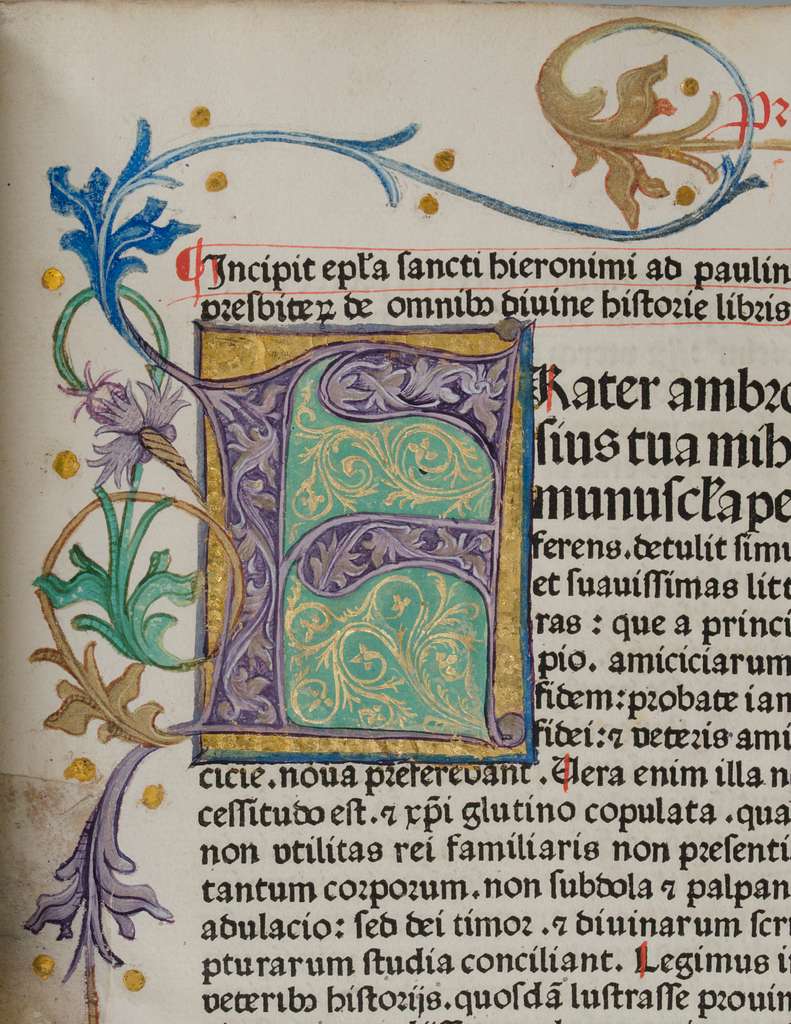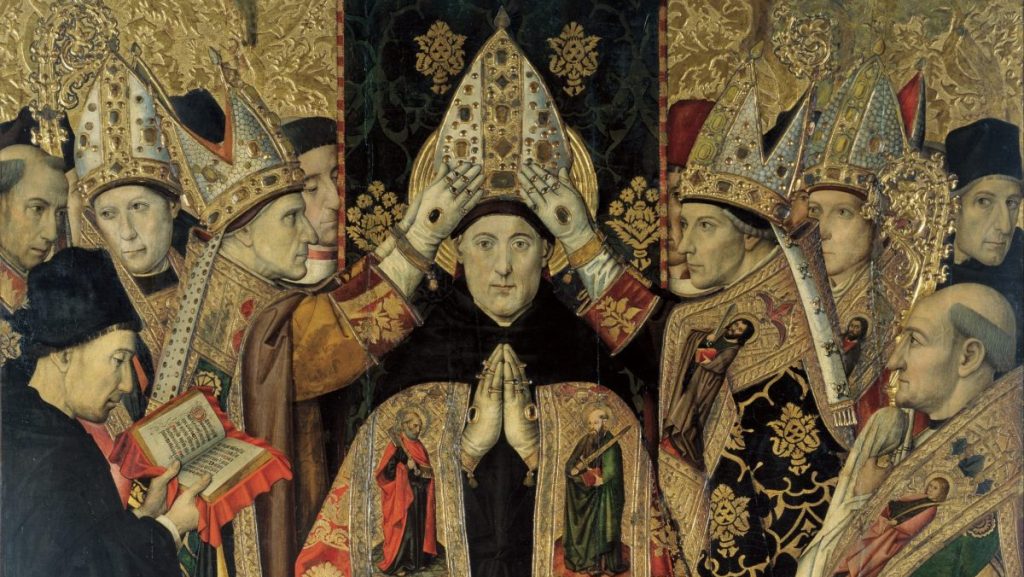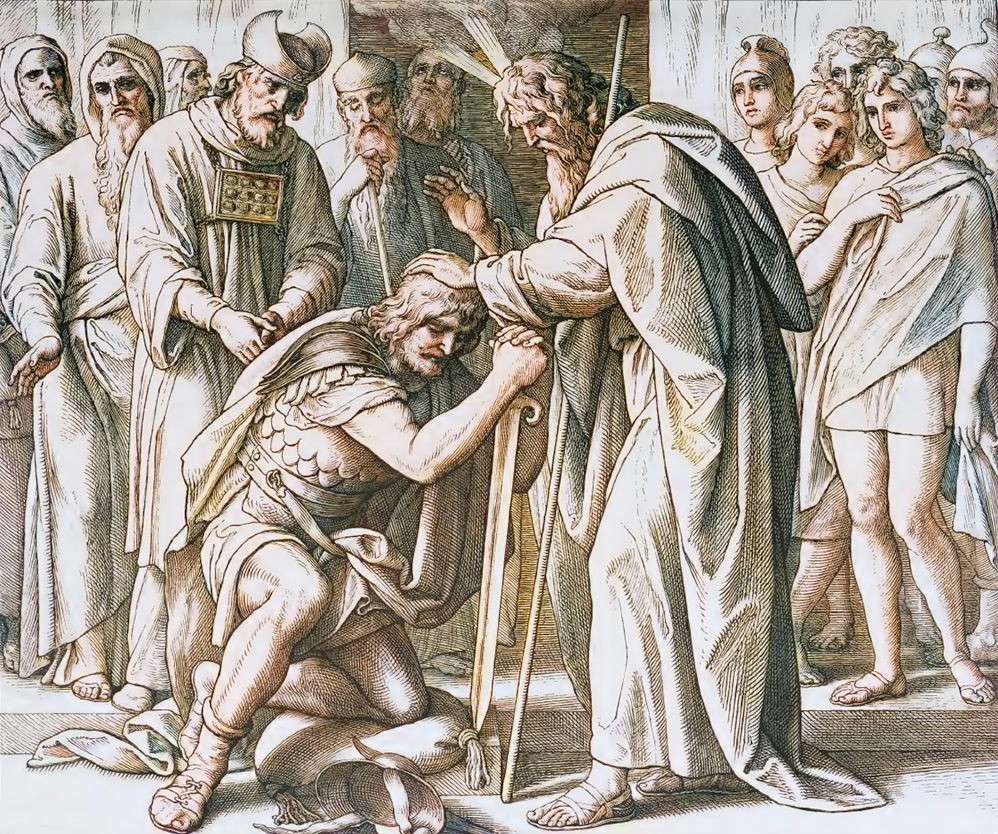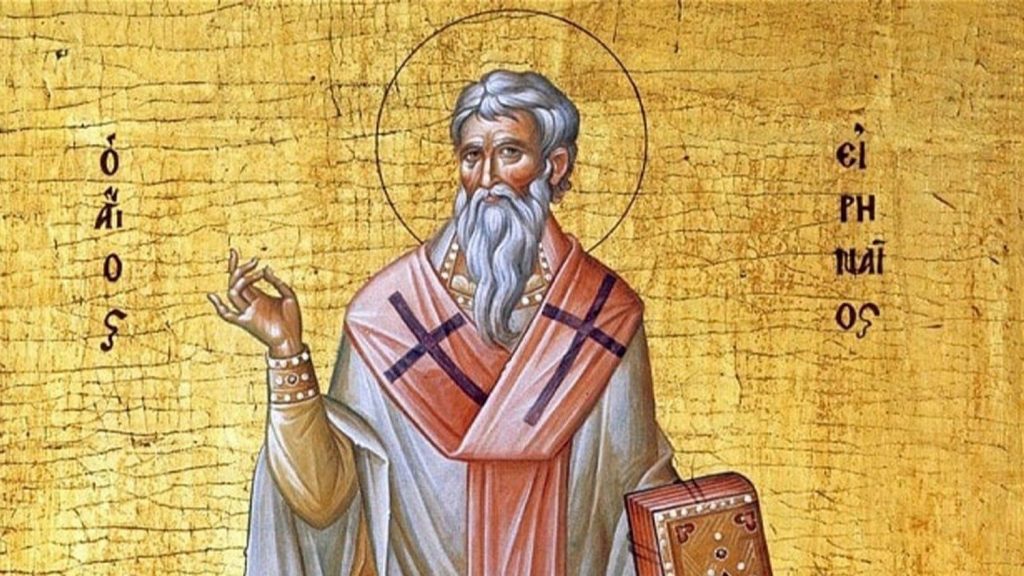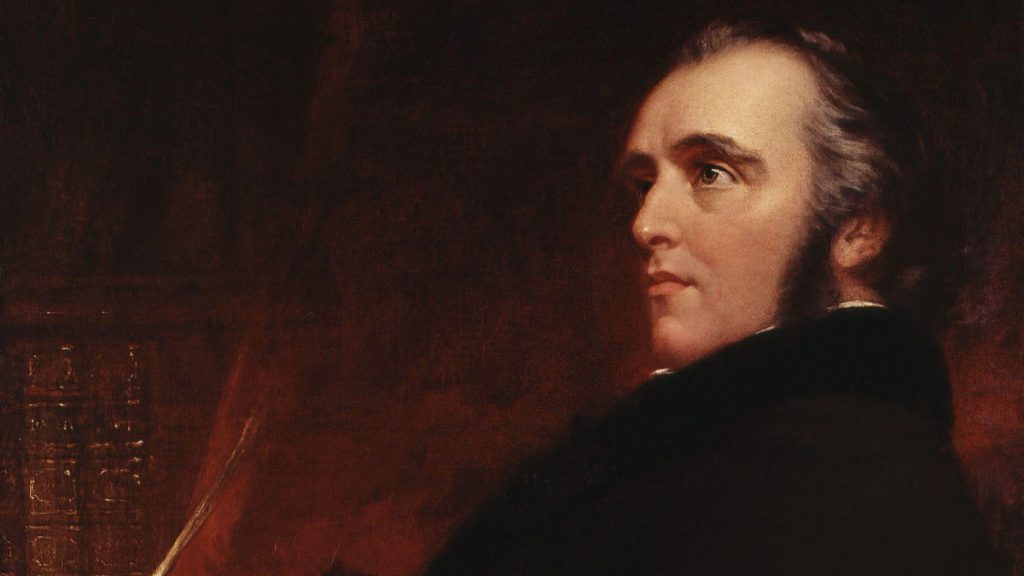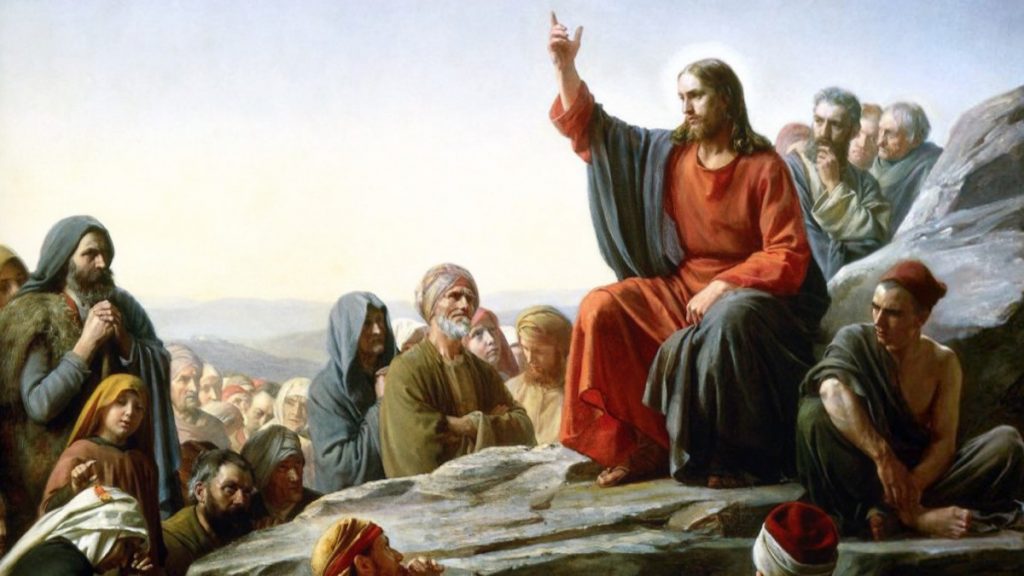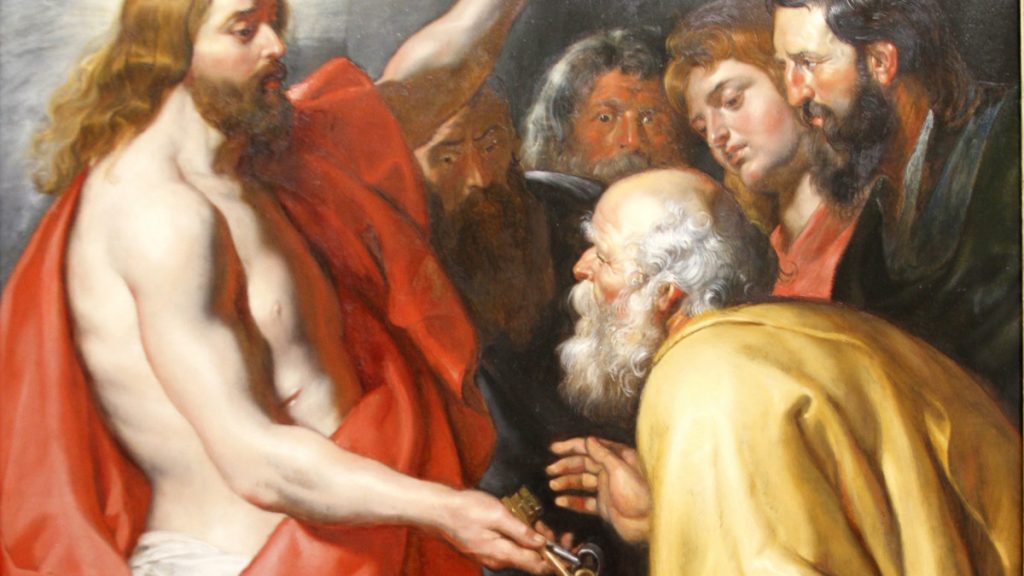(Updated June 26, 2025)
This Quote Archive is on the Canon of Scripture. Each Archive is a treasury of original source quotes on various topics relevant to the Catholic Faith, and addressed in Becoming Catholic articles. They are intended to help people explore the “gold, silver, and precious gems” that have been mined and sifted from the sources of the Great Tradition by Eternal Christendom as a labor of love for our readers, and all seekers of Truth. They are periodically updated as more research is completed.
Some Quote Archives cover topics that include multiple sub-topics, in which individual quotes only address particular sub-topics. The Canon of Scripture is one such topic. Therefore, in order to help readers more easily identify the sub-topics addressed in each quote, they will be listed in alphabetical order after each citation.
Each Author and/or Document Type name is hyperlinked to their respective Author/Document Quote Archive.
Sub-Topics
The sub-topics in this Quote Archive consist mostly of the various books of the Deuterocanonical/”Apocryphal” books that are cited in each quote (next to each quote, they will be listed in the order they are cited):
- TOBIT
- JUDITH
- ESTHER (portions)
- 1 MACCABEES
- 2 MACCABEES
- WISDOM
- SIRACH
- BARUCH
- DANIEL (portions)
- CANON TRADITION (general references to how the Canon of Scripture was actually passed down in the Church)
St. Barnabas (1st century) | EAST
St. Barnabas, Letter of Barnabas (c. 75)
(§6) | WISDOM
Since, therefore, He was about to be manifested and to suffer in the flesh, His suffering was foreshown. For the prophet speaks against Israel, “Woe to their soul, because they have counseled an evil counsel against themselves” (Isa. 3:9) saying, “Let us bind the just one, because he is displeasing to us” (Wis. 2:12).
St. Pope Clement I (died c. 99) | WEST
St. Pope Clement, Letter to the Corinthians (c. 80)
(§27) | WISDOM
By the word of His might He established all things, and by His word He can overthrow them. “Who shall say unto Him, ‘What have you done?’ or, ‘Who shall resist the power of His strength?’” (Wis. 12:12).
St. Polycarp (69-155) | EAST
St. Polycarp, Letter to the Philippians (c. 135)
(§10) | TOBIT
Stand fast, therefore, in these things, and follow the example of the Lord, being firm and unchangeable in the faith, loving the brotherhood (1 Pet. 2:17), and being attached to one another, joined together in the truth, exhibiting the meekness of the Lord in your intercourse with one another, and despising no one. When you can do good, defer it not, because “alms delivers from death” (Tob. 4:10, 12:9). Be all of you subject one to another [1 Pet. 5:5] “having your conduct blameless among the Gentiles” (1 Pet. 2:12), that you may both receive praise for your good works, and the Lord may not be blasphemed through you. But woe to him by whom the name of the Lord is blasphemed (Isa. 52:5)! Teach, therefore, sobriety to all, and manifest it also in your own conduct.
St. Irenaeus of Lyon (c. 130-c. 202) | EAST/WEST
St. Irenaeus of Lyon, Against Heresies (c. 180)
(Book 4, Ch. 26, §3) | DANIEL
Those, however, who are believed to be presbyters by many, but serve their own lusts, and, do not place the fear of God supreme in their hearts, but conduct themselves with contempt towards others, and are puffed up with the pride of holding the chief seat [Matt. 23:6], and work evil deeds in secret, saying, “No man sees us,” shall be convicted by the Word, who does not judge after outward appearance (secundum gloriam), nor looks upon the countenance, but the heart; and they shall hear those words, to be found in Daniel the prophet: “O you seed of Canaan, and not of Judah, beauty has deceived you, and lust perverted your heart” (Dan. 13:56; Dan. 13 is not in the protestant canon). You that are waxen old in wicked days, now your sins which you have committed aforetime have come to light; for you have pronounced false judgments, and have been accustomed to condemn the innocent, and to let the guilty go free, albeit the Lord says, “The innocent and the righteous shall you not slay” (Dan. 13:52, citing Ex. 23:7).
(Book 5, Ch. 35, §1) | BARUCH
Jeremiah the prophet has pointed out, that as many believers as God has prepared for this purpose, to multiply those left upon earth, should both be under the rule of the saints to minister to this Jerusalem, and that [His] kingdom shall be in it, saying, “Look around Jerusalem towards the east, and behold the joy which comes to you from God Himself. Behold, your sons shall come whom you have sent forth: they shall come in a band from the east even unto the west, by the word of that Holy One, rejoicing in that splendor which is from your God. O Jerusalem, put off your robe of mourning and of affliction, and put on that beauty of eternal splendor from your God. Gird yourself with the double garment of that righteousness proceeding from your God; place the miter of eternal glory upon your head. For God will show your glory to the whole earth under heaven. For your name shall forever be called by God Himself, the peace of righteousness and glory to him that worships God. Arise, Jerusalem, stand on high, and look towards the east, and behold your sons from the rising of the sun, even to the west, by the Word of that Holy One, rejoicing in the very remembrance of God. For the footmen have gone forth from you, while they were drawn away by the enemy. God shall bring them in to you, being borne with glory as the throne of a kingdom. For God has decreed that every high mountain shall be brought low, and the eternal hills, and that the valleys be filled, so that the surface of the earth be rendered smooth, that Israel, the glory of God, may walk in safety. The woods, too, shall make shady places, and every sweet-smelling tree shall be for Israel itself by the command of God. For God shall go before with joy in the light of His splendor, with the pity and righteousness which proceeds from Him” (Bar. 4:36-5:9; the book of Baruch was often considered part of Jeremiah).
Tertullian (c. 155-c. 220) | WEST
Tertullian, Against Marcion
(Book 4, Ch. 5) | CANON TRADITION
The same authority of the apostolic churches will afford evidence to the other Gospels also, which we possess equally through their means, and according to their usage—I mean the Gospels of John and Matthew—whilst that which Mark published may be affirmed to be Peter’s whose interpreter Mark was…Such are the summary arguments which we use, when we take up arms against heretics for the faith of the gospel, maintaining both that order of periods, which rules that a late date is the mark of forgers, and that authority of churches which lends support to the tradition of the apostles; because truth must needs precede the forgery, and proceed straight from those by whom it has been handed on.
St. Hippolytus of Rome (c. 170-235) | WEST
St. Hippolytus of Rome, Commentary on Daniel (c. 204)
(§6) | DANIEL
What is narrated here [the story of Susannah], happened at a later time, although it is placed before the first book (at the beginning of the book). For it was a custom with the writers to narrate many things in an inverted order in their writings…To all these things, therefore, we ought to give heed, beloved, fearing lest anyone be overtaken in any transgression, and risk the loss of his soul, knowing as we do that God is the Judge of all; and the Word Himself is the Eye which nothing that is done in the world escapes. Therefore, always watchful in heart and pure in life, let us imitate Susannah [the story of Susannah comes from Dan. 13, which is not in the protestant canon].
Origen (c. 184-c. 253) | EAST
Origen, Commentary on John1
(Book 5, §3)
Paul, who was made a competent minister of the new covenant, not in the letter, but in the spirit [2 Cor. 3:6], who completed preaching the gospel from Jerusalem, as far as Illyricum [Rom. 15:19], did not even write to all the churches which he taught. But even to those to which he wrote, he sent few lines. And Peter, on whom the Church of Christ is built, against which the gates of Hades shall not prevail [Matt. 16:18], has left behind one letter which is accepted. Perhaps there is also a second, but it is doubted. Why must I speak of John who leaned on Jesus’s breast, who has left one Gospel while confessing that he could compose 161 | 162 so many that the world could not contain them [John 21:25]? He also wrote the Apocalypse after he was commanded to be silent and not to record the sounds of the seven thunders [Apoc. 10:4], and an epistle of very few lines. There may also be a second and a third epistle, but not all say that these are genuine. Both, however, are not a hundred lines.
St. Cyprian of Carthage (c. 210-258) | WEST
St. Cyprian of Carthage, Treatise 12: Three Books of Testimonies Against the Jews (248)
(Book 3, §15) | 1 MACCABEES | WISDOM
In Genesis [it says]: “And God, tempted Abraham, and said to him, Take thy only son whom thou lovest, Isaac, and go into the high land, and offer him there as a burnt-offering on one of the mountains of which I will tell thee” (Gen. 22:1-2). Of this same thing in Deuteronomy: “The Lord your God proves you, that He may know if ye love the Lord your God with all your heart, and with all your soul” (Deut. 13:3). Of this same thing in the Wisdom of Solomon: “Although in the sight of men they suffered torments, their hope is full of immortality; and having been in few things distressed, yet in many things they shall be happily ordered, because God tried them, and found them worthy of Himself. As gold in the furnace He proved them, and as a burnt-offering He received them. And in their time there shall be respect of them; they shall judge the nations, and shall rule over the people; and their Lord shall reign forever” (Wis. 3:4-8). Of this same thing in the Maccabees: “Was not Abraham found faithful in temptation, and it was accounted unto him for righteousness?” (1 Mac. 2:52).
St. Cyprian of Carthage, Letter 55: To the People of Thibaris, Exhorting to Martyrdom (c. 253)
(§5) | DANIEL
So Daniel, too, when he was required to worship the idol Bel, which the people and the king then worshiped, in asserting the honor of his God, broke forth with full faith and freedom, saying, “I worship nothing but the Lord my God, who created the heaven and the earth” (Dan. 14:5; from a portion of Daniel not contained in the protestant canon, the story of Bel and the Dragon).
Eusebius of Caesarea (c. 260/265-339) | EAST
Eusebius of Caesarea, The Proof of the Gospel (after 314)
(Book 5, Introduction)2 | CANON TRADITION
And we must recognize that the sacred oracles include in the Hebrew much that is obscure both in expression and in meaning, and are capable of various interpretations–in Greek because of their difficulty. The Seventy Hebrews in concert have translated them together [the Septuagint], and I shall pay the greatest attention to them, because it is the custom of the Christian Church to use their work.
St. Jerome (c. 342/347-420) | EAST/WEST
St. Jerome, Apology Against Rufinus (402)
(Book 2, §33) | CANON TRADITION | DANIEL
What sin have I committed in following the judgment of the churches? But when I repeat what the Jews say against the Story of Susanna [Dan. 13, not in protestant canon] and the Hymn of the Three Children [Dan. 3:29-68, not in protestant canon], and the fables of Bel and the Dragon [Dan. 14, not in protestant canon], which are not contained in the Hebrew Bible, the man who makes this a charge against me proves himself to be a fool and a slanderer; for I explained not what I thought but what they commonly say against us. I did not reply to their opinion in the Preface, because I was studying brevity, and feared that I should seem to be writing not a Preface but a book. I said therefore, “As to which this is not the time to enter into discussion.”
St. Pope Innocent I (died 417) | WEST
St. Pope Innocent I, Letter “Consulenti tibi”: To Bishop Exsuperius of Toulouse (February 20, 405)
(§7)3 | TOBIT | JUDITH | 1 MACCABEES | 2 MACCABEES | WISDOM | SIRACH
A brief addition shows what books really are received in the canon. These are the desiderata of which you wished to be informed verbally:
Of Moses, five books, that is, of Genesis, of Exodus, of Leviticus, of Numbers, of Deuteronomy, and of Joshua one book, of Judges one book, of Kings four books [two books of Samuel, two books of Kings], and also Ruth, of the prophets sixteen books, of Solomon five books [Proverbs, Ecclesiastes, Song of Songs, Wisdom, Sirach], the Psalms.
Likewise of the histories: Job one book, of Tobit one book, Esther one, Judith one, of the Maccabees two, of Esdras two [Ezra one, Nehemiah one], of Chronicles two books.
St. Augustine (354-430) | WEST
St. Augustine, Confessions (c. 397-400)
(Book 7, Ch. 7, §11) | CANON TRADITION
And now, O my Helper, hadst Thou freed me from those fetters; and I inquired, “Whence is evil?” and found no result. But Thou sufferedst me not to be carried away from the faith by any fluctuations of thought, whereby I believed Thee both to exist, and Thy substance to be unchangeable, and that Thou hadst a care of and wouldest judge men; and that in Christ, Thy Son, our Lord, and the Holy Scriptures, which the authority of Thy Catholic Church pressed upon me, Thou hadst planned the way of man’s salvation to that life which is to come after this death.
St. Augustine, On Christian Doctrine (397)
(Book 2, Ch. 8, §13) | TOBIT | JUDITH | ESTHER | 1 MACCABEES | 2 MACCABEES | WISDOM | SIRACH | BARUCH
Now the whole canon of Scripture on which we say this judgment is to be exercised, is contained in the following books: Five books of Moses, that is, Genesis, Exodus, Leviticus, Numbers, Deuteronomy; one book of Joshua the son of Nun; one of Judges; one short book called Ruth, which seems rather to belong to the beginning of Kings; next, four books of Kings, and two of Chronicles—these last not following one another, but running parallel, so to speak, and going over the same ground. The books now mentioned are history, which contains a connected narrative of the times, and follows the order of the events. There are other books which seem to follow no regular order, and are connected neither with the order of the preceding books nor with one another, such as Job, and Tobias, and Esther, and Judith, and the two books of Maccabees, and the two of Ezra, [Ezra and Nehemiah] which last look more like a sequel to the continuous regular history which terminates with the books of Kings and Chronicles. Next are the Prophets, in which there is one book of the Psalms of David; and three books of Solomon, viz., Proverbs, Song of Songs, and Ecclesiastes. For two books, one called Wisdom and the other Ecclesiasticus [Sirach], are ascribed to Solomon from a certain resemblance of style, but the most likely opinion is that they were written by Jesus the son of Sirach.4 Still they are to be reckoned among the prophetical books, since they have attained recognition as being authoritative. The remainder are the books which are strictly called the Prophets: twelve separate books of the prophets which are connected with one another, and having never been disjoined, are reckoned as one book; the names of these prophets are as follows: Hosea, Joel, Amos, Obadiah, Jonah, Micah, Nahum, Habakkuk, Zephaniah, Haggai, Zechariah, Malachi; then there are the four greater prophets, Isaiah, Jeremiah [likely included Baruch], Daniel, Ezekiel. The authority of the Old Testament is contained within the limits of these forty-four books.
St. Augustine, Against the Fundamental Letter of Manichaeus (397)
(§6) | CANON TRADITION
Let us see then what Manichaeus teaches me; and particularly let us examine that treatise which he calls the Fundamental Epistle, in which almost all that you believe is contained. For in that unhappy time when we read it we were in your opinion enlightened. The epistle begins thus: “Manichaeus, an apostle of Jesus Christ, by the providence of God the Father. These are wholesome words from the perennial and living fountain.” Now, if you please, patiently give heed to my inquiry. I do not believe Manichaeus to be an apostle of Christ. Do not, I beg of you, be enraged and begin to curse. For you know that it is my rule to believe none of your statements without consideration. Therefore I ask, who is this Manichaeus? You will reply, An apostle of Christ. I do not believe it. Now you are at a loss what to say or do; for you promised to give knowledge of the truth, and here you are forcing me to believe what I have no knowledge of. Perhaps you will read the gospel to me, and will attempt to find there a testimony to Manichaeus. But should you meet with a person not yet believing the gospel, how would you reply to him were he to say, I do not believe? For my part, I should not believe the gospel except as moved by the authority of the Catholic Church. So when those on whose authority I have consented to believe in the gospel tell me not to believe in Manichaeus, how can I but consent? Take your choice.
If you say, “Believe the Catholics,” their advice to me is to put no faith in you, so that, believing them, I am precluded from believing you.
If you say, “Do not believe the Catholics,” you cannot fairly use the gospel in bringing me to faith in Manichaeus, for it was at the command of the Catholics that I believed the gospel.
Again, if you say, “You were right in believing the Catholics when they praised the gospel, but wrong in believing their vituperation of Manichaeus,” do you think me such a fool as to believe or not to believe as you like or dislike, without any reason?
It is therefore fairer and safer by far for me, having in one instance put faith in the Catholics, not to go over to you, till, instead of bidding me believe, you make me understand something in the clearest and most open manner. To convince me, then, you must put aside the gospel. If you keep to the gospel, I will keep to those who commanded me to believe the gospel; and, in obedience to them, I will not believe you at all. But if haply you should succeed in finding in the gospel an incontrovertible testimony to the apostleship of Manichaeus, you will weaken my regard for the authority of the Catholics who bid me not to believe you; and the effect of that will be, that I shall no longer be able to believe the gospel either, for it was through the Catholics that I got my faith in it; and so, whatever you bring from the gospel will no longer have any weight with me. Wherefore, if no clear proof of the apostleship of Manichaeus is found in the gospel, I will believe the Catholics rather than you. But if you read thence some passage clearly in favor of Manichaeus, I will believe neither them nor you: not them, for they lied to me about you; nor you, for you quote to me that Scripture which I had believed on the authority of those liars. But far be it that I should not believe the gospel; for believing it, I find no way of believing you too. For the names of the apostles, as there recorded [Matt. 10:2-4; Mark 3:13-19; Luke 6:13-18], do not include the name of Manichaeus. And who the successor of Christ’s betrayer was we read in the Acts of the Apostles [Acts 1:26]; which book I must needs believe if I believe the gospel, since both writings alike Catholic authority commends to me. The same book contains the well-known narrative of the calling and apostleship of Paul [Acts 9]. Read me now, if you can, in the gospel where Manichaeus is called an apostle, or in any other book in which I have professed to believe. Will you read the passage where the Lord promised the Holy Spirit as a Paraclete, to the apostles? Concerning which passage, behold how many and how great are the things that restrain and deter me from believing in Manichaeus.
St. Augustine, Reply to Faustus the Manichaean (c. 400)
(Book 11, §5) | CANON TRADITION
In order to leave room for such profitable discussions of difficult questions, there is a distinct boundary line separating all productions subsequent to apostolic times from the authoritative canonical books of the Old and New Testaments. The authority of these books has come down to us from the apostles through the successions of bishops and the extension of the Church, and, from a position of lofty supremacy, claims the submission of every faithful and pious mind.
(Book 28, §2) | CANON TRADITION
As, then, I believe your book to be the production of Manichaeus, since it has been kept and handed down among the disciples of Manichaeus, from the time when he lived to the present time, by a regular succession of your presidents, so I ask you to believe the book which I quote to have been written by Matthew, since it has been handed down from the days of Matthew in the Church, without any break in the connection between that time and the present. The question then is, whether we are to believe the statements of an apostle who was in the company of Christ while He was on earth, or of a man away in Persia, born long after Christ. But perhaps you will quote some other book bearing the name of an apostle known to have been chosen by Christ; and you will find there that Christ was not born of Mary. Since, then, one of the books must be false, the question in this case is, whether we are to yield our belief to a book acknowledged and approved as handed down from the beginning in the Church founded by Christ Himself, and maintained through the apostles and their successors in an unbroken connection all over the world to the present day; or to a book which this Church condemns as unknown, and which, moreover, is brought forward by men who prove their veracity by praising Christ for falsehood.
St. Augustine, On Care for the Dead (c. 422)
(§3) | 2 MACCABEES
In the books of the Maccabees we read of sacrifice offered for the dead [2 Mac. 12:43]. But even if it were nowhere at all read in the Old Scriptures, not small is the authority, which in this usage is clear, of the whole Church, namely, that in the prayers of the priest which are offered to the Lord God at His altar, the Commendation of the dead hath also its place…
Councils
Council of Rome (382)5
St. Pope Damasus, Decree | CANON TRADITION
Now indeed we must treat of the divine Scriptures, what the universal Catholic Church accepts and what she must avoid.
At the beginning, the order of the Old Testament. Genesis, one book; Exodus, one book; Leviticus, one book; Numbers, one book; Deuteronomy, one book; Joshua, one book; Judges, one book; Ruth, one book; Kings, four books [two books of Samuel, two books of Kings]; Chronicles, two books; 150 Psalms [Psalter], one book; three books of Solomon, Proverbs, one book; Ecclesiastes, one book; Song of Songs, one book; likewise, Wisdom, one book; Ecclesiasticus [Sirach], one book.
Likewise, the order of the prophets. Isaiah, one book; Jeremiah, one book; along with the Qinoth, that is, his Lamentations; Ezekiel, one book; Daniel, one book; Hosea, one book; Amos, one book; Micah, one book; Joel, one book; Obadiah, one book; Jonah, one book; Nahum, one book; Habakkuk, one book; Zephaniah, one book; Haggai, one book; Zechariah, one book; Malachi, one book.
Likewise, the order of the histories. Job, one book; Tobit, one book; Ezra, two books [Ezra, Nehemiah], Esther, one book; Judith, one book; of the Maccabees, two books. 71 | 72
Likewise, the order of the Scriptures of the New and eternal Testament, which the holy and Catholic [Roman] Church accepts [and venerates]. [Lists New Testament canon]
Council of Hippo (393); Council of Carthage (397)
(Can. 36/47)6 | CANON TRADITION | WISDOM | SIRACH | TOBIT | JUDITH | 1 MACCABEES | 2 MACCABEES
[It has been decided] that, in the Church, nothing should be read except the canonical writings under the name of the “divine Scriptures.” These canonical writings are: Genesis, Exodus, Leviticus, Numbers, Deuteronomy, Joshua, Judges, Ruth, the four books of Kings [two of Samuel, two of Kings], the two books of Chronicles, Job, the Davidic Psalter, the five books of Solomon [Proverbs, Ecclesiastes, Song of Songs, Wisdom, Sirach], the twelve books of the prophets, Isaiah, Jeremiah, Daniel, Ezekiel, Tobit, Judith, Esther, two books of Esdras [Ezra, Nehemiah], two books of Maccabees…
[In one codex, it is added] that the Church beyond the sea [Rome, etc.] should be consulted for the confirmation of this canon.
Council of Carthage (419)
(Can. 24/27 in Greek) | CANON TRADITION | WISDOM | SIRACH | TOBIT | JUDITH | 1 MACCABEES | 2 MACCABEES
[T]hat besides the Canonical Scriptures nothing be read in church under the name of divine Scripture.
But the Canonical Scriptures are as follows: Genesis. Exodus. Leviticus. Numbers. Deuteronomy. Joshua the Son of Nun. The Judges. Ruth. The Kings, four books. The Chronicles, two books. Job. The Psalter. The Five books of Solomon [Proverbs, Ecclesiastes, Song of Songs, Wisdom, Sirach]. The Twelve Books of the Prophets. Isaiah. Jeremiah. Ezekiel. Daniel. Tobit. Judith. Esther. Ezra, two books [Ezra and Nehemiah]. Maccabees, two books…
Let this be sent to our brother and fellow bishop, [St. Pope] Boniface, and to the other bishops of those parts, that they may confirm this canon, for these are the things which we have received from our fathers to be read in church.
Apostolic Teachings and Constitutions
Didache (c. 50)
(Ch. 4, §5)7 | SIRACH
Do not hold your hands open for receiving and closed for giving [Sir. 4:31]…Do not turn away from the needy [Sir. 4:5], but share all with your brother and do not claim that it is your own [Acts 4:32]
Apostolic Constitutions (c. 400)
(Book 8, Part 1, §2) | JUDITH
Now women prophesied also. Of old, Miriam the sister of Moses and Aaron, and after her Deborah, and after these Huldah and Judith—the former under Josiah, the latter under Darius…
Footnotes
- Origen, Ronald E. Heine, trans., The Fathers of the Church, Vol. 80: Origen, Commentary on the Gospel According to John, Books 1-10 (Washington, DC: The Catholic University of America Press, 1989), 161-62. ↩︎
- Eusebius of Caesarea, W.J. Ferrar, trans., The Proof of the Gospel, Volumes 1 and 2 (Eugene, OR: Wipf and Stock Publishers, 2001), 230. ↩︎
- DS, 213; Heinrich Denzinger, Peter Hünermann, ed., Robert Fastiggi and Anne Englund Nash, eds., Heinrich Denzinger: Compendium of Creeds, Definitions, and Declarations on Matters of Faith and Morals, 43rd ed. (San Francisco: Ignatius Press, 2012), 78. ↩︎
- St. Augustine corrected his opinion about the authorship of the book Wisdom in Retractions (Ch. 30, §2; or Book 2, Ch. 4, §2). ↩︎
- DS, 179-80; Heinrich Denzinger, Peter Hünermann, ed., Robert Fastiggi and Anne Englund Nash, eds., Heinrich Denzinger: Compendium of Creeds, Definitions, and Declarations on Matters of Faith and Morals, 43rd ed. (San Francisco: Ignatius Press, 2012), 71-72. ↩︎
- DS, 186; Heinrich Denzinger, Peter Hünermann, ed., Robert Fastiggi and Anne Englund Nash, eds., Heinrich Denzinger: Compendium of Creeds, Definitions, and Declarations on Matters of Faith and Morals, 43rd ed. (San Francisco: Ignatius Press, 2012), 73-74. ↩︎
- Francis X. Glimm, Joseph M.F. Marique, SJ, Gerald G. Walsh, SJ, trans., The Fathers of the Church, Vol. 1: The Apostolic Fathers (Washington, DC: The Catholic University of America Press, 1947), 174. ↩︎
